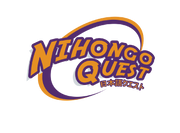What's the difference between じ/ぢ and ず/づ?
In Japanese, basically one character = one syllable (technically, they're not syllables but "moras," but eh, you get the point). Each Hiragana character has a unique sound with a few exceptions.

Two groups of exceptions are じ/ぢ (ji/ji) and ず/づ. (zu/dzu) When romanizing じ/ぢ, "ji" is used for both (pro tip: if you need to type ぢ on keyboard, though, you can type "di"). So what gives? Why have different characters for the same sounds? Is it just to torture poor foreigners studying the language? As you are playing through
- Choosing a selection results in a full page refresh.
- Press the space key then arrow keys to make a selection.

